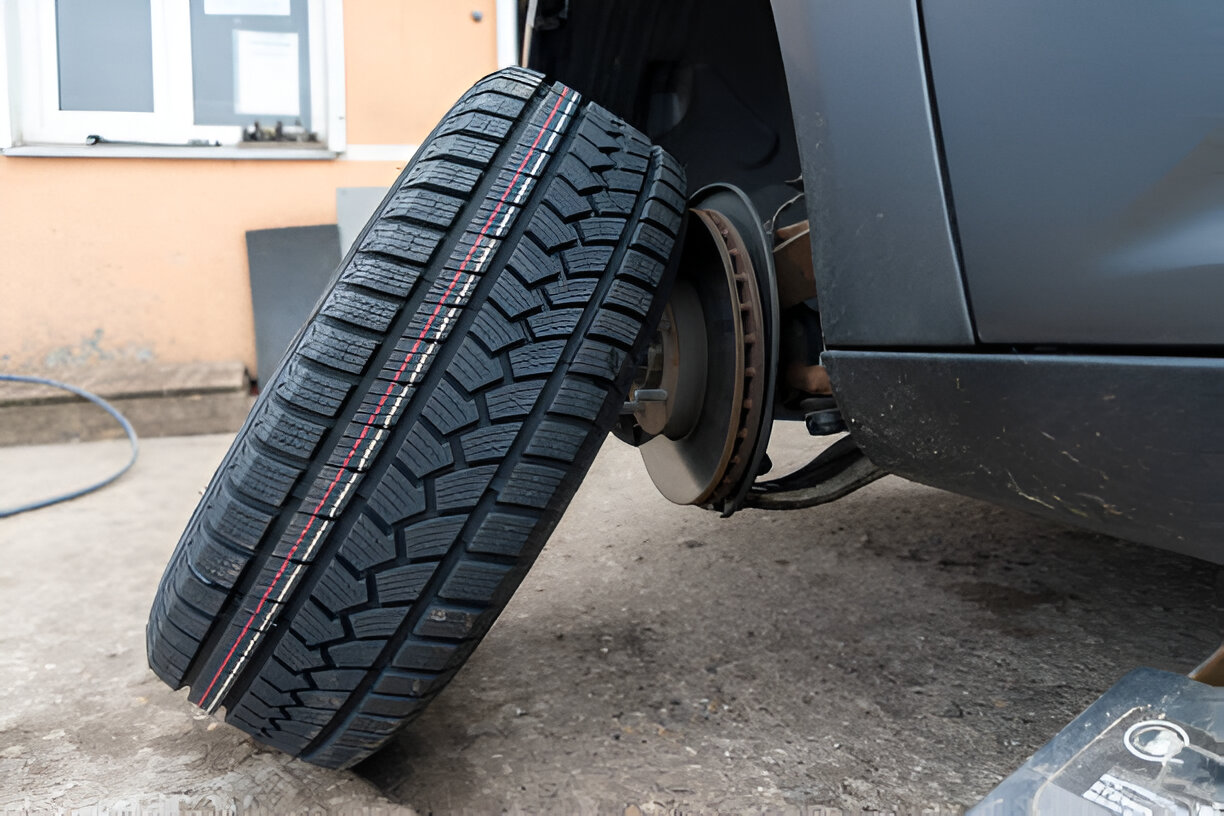Last Updated on 4 months
Why EV Tires Are Different Than Regular Tires: Key Differences Explained
The rise of electric vehicles (EVs) has transformed the automotive industry by properly giga-telling the advancements of various components, including tires. The unique demands and characteristics of electric vehicles, such as their increased weight, the need for energy efficiency, different driving dynamics, noise considerations, and market economics, require specialized tires.
These differences set EV tires apart from regular car tires, underscoring the importance of understanding the reasons behind these distinctions. Let’s dive into why EV tires are different from regular tires.

Weight Differences
The first thing is weight, and one of the most significant differences between EVs and traditional internal combustion engine (ICE) vehicles is weight. Electric vehicles are generally heavier due to the large battery packs required to power them. On average, an EV battery weighs between 500 and 1200 pounds and up to 2000 pounds for larger models. These battery packs add several hundred pounds to the vehicle’s weight, significantly heavier than gas-powered vehicles.
EV tires must be constructed with more robust materials and reinforced sidewalls to handle this additional weight. The internal structure of EV tires is designed to provide the necessary strength and durability to support the extra load without compromising performance or safety. This robust construction ensures that the tires can withstand the increased stress and pressure, which helps maintain stability and ride quality.
Energy Efficiency
The second major difference is maximizing energy efficiency. It is a critical aspect of EV design, primarily because the driving range of electric vehicles is often limited compared to internal combustion engine (ICE) vehicles.
One way to enhance energy efficiency is to reduce “rolling resistance.” Rolling resistance is the energy lost as the tire rolls under the vehicle’s weight; a lower rolling resistance requires less energy to keep the car moving. EV tires are specifically engineered to have lower rolling resistance than regular car tires.
This is achieved through advanced rubber compounds and innovative tread designs that minimize energy loss. By reducing rolling resistance, EV tires help extend the vehicle’s driving range, allowing drivers to travel further on a single charge. While reducing rolling resistance has been a focus for improving fuel economy in ICE vehicles, EVS must maximize battery efficiency.
Driving Dynamics
The third factor is electric vehicles’ distinct driving dynamics and power delivery. These vehicles, powered by electric motors vs. internal combustion engine (ICE) vehicles, provide instant torque delivery, significantly impacting tire performance.
To accommodate the high torque output of electric motors, EV tires are made with specialized rubber compounds that provide excellent grip and traction. These compounds are engineered to withstand the stress of rapid acceleration without excessive wear. Additionally, the tread patterns of EV tires are designed to optimize traction and handling, ensuring that the tires can effectively manage the power delivery of the electric motor.
Sound Reduction and Operation
Fourth, one of the most notable advantages of electric vehicles is their quiet operation, as they lack the noise generated by internal combustion engines. However, this increased quietness can make other sounds, such as tire noise, more noticeable. To address this issue, EV tires are designed to minimize road noise and provide a quieter driving experience.

Manufacturers use various techniques to reduce rolling noise in EV tires. For example, some EV tires incorporate foam inserts within the tire to absorb and dampen sound. The tread patterns and rubber compounds are also optimized to reduce noise generation.
However, a recent study in 2020 found that “The absence of acoustic signals that help detect the presence of an EV or HEV can compromise pedestrian safety, especially in low visibility areas or in the case of blind people.” There is a growing awareness that the lack of rolling noise might pose a safety risk, as pedestrians and cyclists may not hear an approaching electric vehicle. Some manufacturers are exploring ways to generate more rolling noise or use artificial sounds to alert pedestrians to the presence of an EV.
Costs
The cost of EV tires is another significant difference compared to regular car tires. On average, EV tires are more expensive, and this price difference can be attributed to several factors:
- Using advanced materials and technologies in EV tire construction increases production costs. Specialized rubber compounds, reinforced sidewalls, and innovative tread designs all increase the overall cost of EV tires.
- There is a higher per-unit production cost due to the much smaller market for EV tires than regular tires. However, as the demand for electric vehicles grows and more manufacturers enter the market, the prices of EV tires are expected to decrease due to increased production volumes and improved manufacturing efficiencies.
- Electric vehicles come equipped with larger wheels, typically 19-23 inches, which require larger and more expensive tires. The larger wheel size enhances the vehicle’s aesthetic appeal, improves handling and performance, and increases the cost of replacement tires.
Conclusion
In conclusion, EV and regular car tires differ from electric vehicles’ unique demands and characteristics. These specialized tires are designed to handle the increased weight of EVs, maximize energy efficiency, accommodate unique driving dynamics, and minimize road noise, all while supporting the rapid advancements in the EV market.
While EV tires may come at a higher cost due to their advanced construction and smaller market, the growing demand for electric vehicles will likely drive down prices over time.
Investing in the right tires for your EV not only enhances performance and safety but also contributes to the overall efficiency and enjoyment of your driving experience. By recognizing the particular demands of electric vehicles, you can make an informed decision to ensure that your EV operates at its best.










